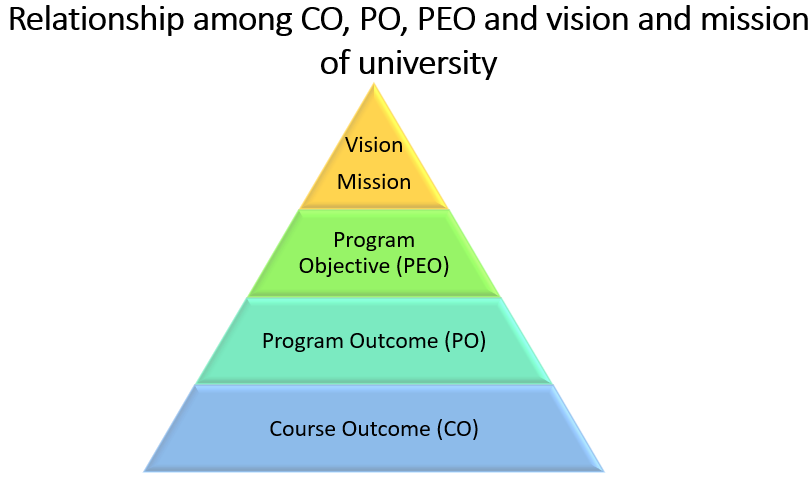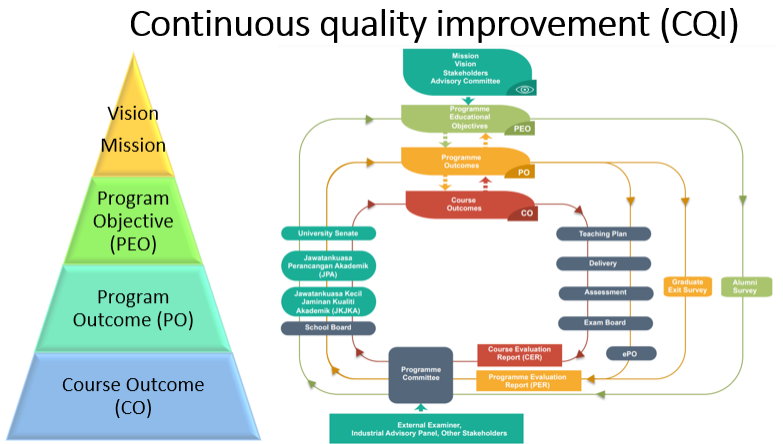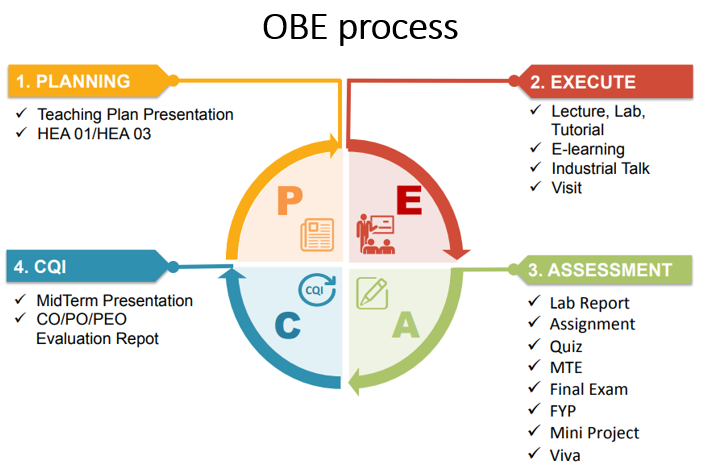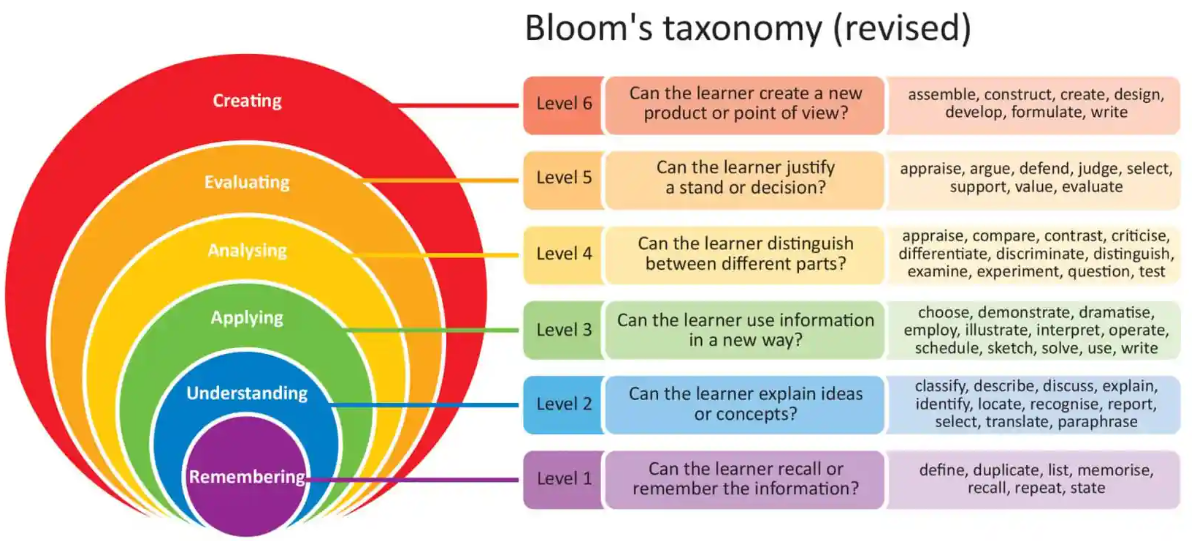Senior lecturer
Major routine tasks of senior lecturer
Analyze and monitor the achievement of programme education objectives (PEOs)
The achievement of the graduates in their career and professional life is monitored and analysed during 3 - 5 years after graduation. Currently, the programme educational objectives (PEOs) for the mechanical engineering programme are:
PEO1 - Graduates who have demonstrated career advancement in the field of mechanical engineering oriented engineering field.
PEO2 - Graduates who are involved in a professional body or society.
PEO3 - Graduates who pursue lifelong learning.
Analyze, monitor and development of programme outcomes (POs)
Conduct market survey on the needs of market for the respective programme. Conduct a workshop with the identified stakeholder. Draft the paperwork for the development of a new or modified programme. Application for the new/modify programme approval. Identify the programme outcomes (POs), which is the ability of graduates upon graduation. Currently the programme outcomes for mechanical engineering programme are:
PO1 - Engineering knowledge : Apply knowledge of mathematics, natural science, engineering fundamentals and an engineering specialization as specified in WK1 to Wk4 respectively to the sollution of complex engineering problems.
PO2 - Problem analysis : Identify, formulate, research literature and analyse complex engineering problems reaching substantiated conclusions using first principles of mathematics, natural sciences and engineering sciences. (WK1 to WK4)
PO3 - Design/development of solutions : Design solutions for complex engineering problems and design systems, components or processes that meet specified needs with appropriate consideration for public health and safety, cultural, societal and environmental consideration. (WK5)
PO4 - Conduct investigations of complex problems using research-based knowledge (WK8) and research methods including design of experiments, analysis and interpretation of data, and synthesis of information to provide valid conclusions.
PO5 - Modern tool usage : Create, select and apply appropriate techniques, resources, and modern engineering and IT tools, including prediction and modelling, to complex engineering problems, with an understanding of the limitations. (WK6)
PO6 - The engineer and society : Apply reasoning informed by contextual knowledge to assess societal, health, safety, legal and cultural issues and the consequent responsobilities relevant to professional engineering practice and solultions to complex engineering problems. (WK7)
PO7 - Environment and sustainability : undeerstand and evaluate the sustainability and impact of professional engineering work in the solution of complex engineering problems in societal and environmental contexts. (WK7)
PO8 - Ethics : Apply ethical principles and commit to professional ethics and responsibilities and norms of engineering practice. (WK7)
PO9 - Individual and team work : Function effectively as an individual, and as a member or leader in diverse teams and in multi-disciplineary settings.
PO10 - Communications : Communicate effectively on complex engineering activities with the engineering community and with society at large, such as being able to comprehend and write effective reports and design documentation, make effective presentations, and give and recieve clear instructions.
PO11 - Project management and finance : Demonstrate knowlegde and understanding of engineering management principles and economic decision-making and apply these to one's own work, as a member and leader in a team, to manage projects and in multidisciplinary environments.
PO12 - Life-long learning : Recognize the need for, and have the preparation and ability to engage in independent and life-long learning in the broadest context of technological change.
Programme curriculum structure development
Analyze, monitor and development of course outcomes (COs)
The achievement of students at the end of a course is monitored and analyzed with suitable assessment tools like final examination questions, test questions, quizzes, assignments, laboratory reports, technical reports, viva presentations, project demonstrations, mini projects, etc. This achievement is mentioned as course outcomes (COs), which are mapped to the programme outcomes (POs). The achievement of COs contributes towards the achievement of POs either in the enabling courses or cumulative courses.
The COs are developed based on the learning domains as expressed by Bloom's taxonomy, which can be divided into three domains: cognitive, psychomotor, and affective. The revised version of Bloom's taxonomy divided the levels of learning as follows:
Cognitive
C1 - Remembering
C2 - Understanding
C3 - Applying
C4 - Analysing
C5 - Evaluating
C6 - Creating
Psychomotor
P1 - Perception
P2 - Set
P3 - Guided response
P4 - Mechanism
P5 - Complex overt response
P6 - Adaption
P7 - Origination
Affective
A1 - Internalizes value
A2 - Organization
A3 - Valuing
A4 - Responds to phenomena
A5 - Receiving phenomena
Knowing the COs for each course helps to predict the assessment of a particular course as those assessments are designed to analyze the achievement of respective CO at end of the semester. The learning domains and Bloom's taxonomy level help to explain the highest difficulty of those assessments.
Pre-semester preparation and student-learning time (SLT) analysis
Before a semester is started, the lecturer will be appointed as course coordinator. Course coordinator will responsible for the assigned course including coordinate with the teaching team (lecturers who will teach the same course), design the assessment tools, silibus planning based on previous report (the achivement of students during last semester or last academic session in the same course), analyze the student-learning time (SLT), analyze the attendance rate of each students, etc.
The most important part of the pre-semester preparation is that it serves as a planning stage within the continuous quality improvement (CQI) process. The input from the previous report of the same course offered in the last semester or last academic session is considered. Suitable and reasonable suggestions from the last course coordinator will be considered into the implementation of concurrent semester either in terms of syllabus contents, delivery methods, assessments and/or etc. Such implementations will be reflected into the teaching planning of concurrent semester. Such implementation is detailed accordingly to the delivery and assessment activities for each weeks within the semester. Assessment tools are listed accordingly to its mapping to the CO and PO. Also, these assessment tools will be identify accordingly either it is group assessment or individual assessment, whether it is mapped to the engineering problems (including the specific engineering problem and activities), and the contribution of each assessment tools. If there is any related sustainable development goals (SDGs) are introduced for students within the course will be highlighted.
Student-learning time (SLT) express the duration of self learning in hour that need to be spend by a student for each week within a semester and the total duration of it. It reflects the commitment of students towards the course. The learning time during course delivery like lecture, tutorial, laboratory and workshop as well ass course assessment like assignment, project, case study, presentation, quiz, test, lab test and final examination are considered. Roughly speaking, a student are required to spend around 120 hours per semester per a 3-credits course. For example, if a student take the maximum allowed 18 credits, he or she needs to spend 720 hours per semester for study. For 14 weeks per semester and 5 study day per week, it means 10 hours 17 minutes each day for study. In other words, the more credits registered by a student, he or she is expected to spend more time on study.
Teaching
-
Academic session 22/23 sem 1
MMJ12503 - Computer programming
Lecturer
85 students - Academic session 21/22 sem 3
- Academic session 21/22 sem 2
- Academic session 21/22 sem 1
- Academic session 20/21 sem 3
- Academic session 20/21 sem 2
- Academic session 20/21 sem 1
- Academic session 19/20 sem 2
- Academic session 19/20 sem 1
- Academic session 18/19 sem 2
- Academic session 14/15 sem 1
- Academic session 13/14 sem 2
- Academic session 13/14 sem 1
- Academic session 12/13 sem 2
- Academic session 12/13 sem 1
- Academic session 11/12 sem 2
- Academic session 11/12 sem 1
- Academic session 10/11 sem 2
- Academic session 10/11 sem 1
- Academic session 09/10 sem 3
- Academic session 09/10 sem 2
- Academic session 09/10 sem 1
- Academic session 08/09 sem 2
- Academic session 08/09 sem 1



